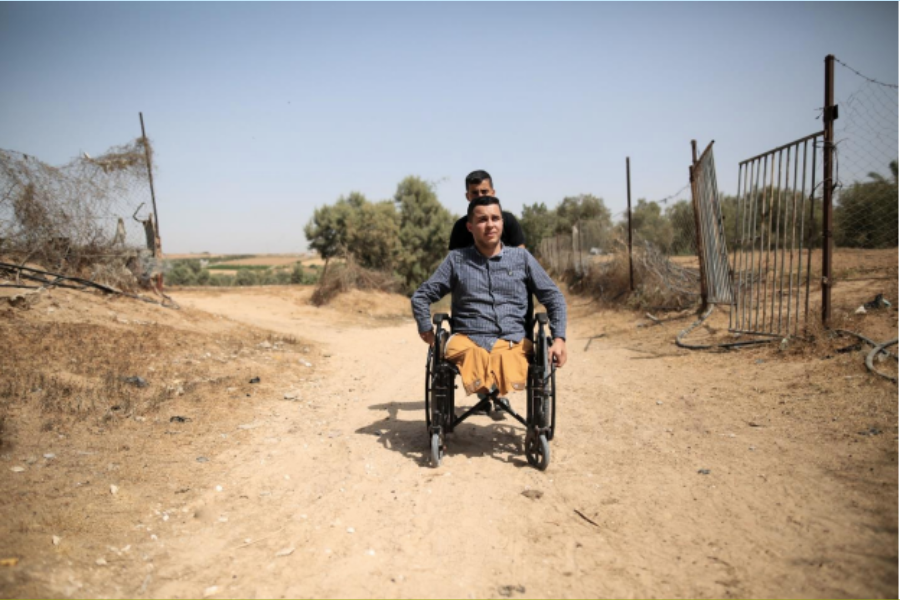
ISRAEL'S blockade of Gaza has now been ongoing for 15 years with relief efforts now a “permanent operation”, according to Oxfam.
There are 2.1m Palestinians blockaded inside Gaza with the international community spending over $5.7 billion on those who need help.
This month, Oxfam has joined #OpenUpGaza15 in which 15 young people living in the area will speak about their struggles and the constraints which are placed on their lives.
Oxfam’s international executive director Gabriela Butcher said: “The humanitarian relief effort has long become a permanent operation.
“We are collectively forced into being de facto enablers of an open-air prison.
“Today, seven out of ten people in Gaza depend on aid. This must change. We look to the UN Secretary-General personally to make the immediate lifting of the Gaza blockade a priority.”
Back in the 1990s, the Israeli government introduced incremental measures to restrict the movement of both people and goods between Gaza and the West Bank as well as cutting Gaza off from the rest of the world.
Despite withdrawing its settlers and military from all areas in central Gaza to the border areas in 2005, Israel still maintains control over Gaza’s coastline, airspace, land perimeter and border crossings.
The Government of Israel has stated that the aim of the blockade has been to isolate Hamas and prevent Palestinian rocket fire into Israel.
Oxfam’s country director Shane Stevenson said: “Most all of Israel’s restrictions are motivated by politics, not security.
“Palestinian families in Gaza are being collectively and illegally punished.”
Statistics show that the unemployment rate in the region is 46.6% whilst the number of food insecure people stands at 64%.
One of the stories from #OpenUpGaza15 comes from 15-year-old Ahmad Abu Dagga who excels in sciences but fears that he will finish 12 years of schooling without ever seeing a microscope in his school’s laboratory.
Another comes from 23-year-old Alaa Abu Sleih who was born with a physical disability.
A few years ago, the control panel of his wheelchair broke down and he is unable to get a new one leaving him with concerns about how he will get around.
Stevenson added: “The UN and its member states must become the diplomatic power brokers needed to end this blockade now.
“All sides must commit to a time-bound plan with actions and strong accountability mechanisms.
“We refuse to accept that all the effort made to maintain the blockade for 15 years can’t instead be harnessed for good and to consign it to history.”







